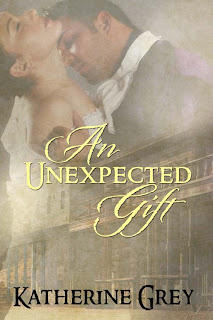Skin Deep (Flash Fiction)
This story was written in response to Chuck Wendig's flash fiction challenge. The random phrase generator gave me 'pencilled collarbone' and 'Skin Deep' was the result.
The first time I saw
Lydia, I thought she had tattoos. A dragon snaked down her left arm,
its tail disappearing under the sleeve of her surprisingly ladylike
summer blouse. On her right forearm, a sailing ship danced over the
waves, and a fairy forest grew up her calves.
“That'll be four
ninety-five.” Her voice was as delicate as her wrists.
I handed over a
fiver, then smiled my thanks as she returned my change. I took my
tray to the nearest table and listened as the next five customers
complimented the designs. She smiled at each one as if it was the
first time she'd heard the comment.
The Copper Cauldron
wasn't the kind of place people went back to. On the road from
somewhere to nowhere in particular, it scraped by on passing trade,
while the occupants of the few local offices ate their brown bag
lunches on the bench outside in summer, and at their desks in winter.
I'd been enticed in
one morning when I was running too late to make sandwiches on my way
to the office. A week later, I was enticed back by the memory of
Lydia's gentle smile.
This time, her left
arm was encircled by a complex band of Celtic knotwork. A snake
swallowed its tail around her neck, and a butterfly perched on the
rose which grew on her right forearm.
For a moment, I let
myself entertain the notion that I'd misremembered the pictures, but
I knew that wasn't the case.
I took my tray to
the counter, handed over the right money, and walked to what had
already become 'my table.'
During the time it
took me to finish eating my plate of lasagne, six people went through
the till. Four of them commented on the tattoos. She smiled at each
of them, and never corrected them. Maybe it didn't matter. They
were just passing through.
When I finished
eating, I checked my watch. I had seventeen minutes before I was due
back at the office. I pulled out my pen and sketchpad, and sketched
the rough forms of a dragon, a sailing ship and a fairy curled in the
branches of a tree. I took my pad to the counter and showed it to
Lydia. She knew exactly what I was asking.
“They're drawn
with pen,” she explained. “I give art a chance to live, to be
seen. It takes about a week to wash off.”
I thought about
this, and she looked at me as if she, too, was thinking.
I smiled. I liked
the idea of giving art a home and I was fascinated by the pictures'
impermanence. Each drawing was fresh and new, like sand sculptures
which you knew would be washed away by the tide.
“Would you like to
draw for me?” she asked.
I wanted to say,
“You're beautiful,” but my tongue locked up. I nodded. Perhaps
I could draw it instead.
“On Saturday?”
I nodded again. She
pushed a piece of paper into my hand.
“Come to this
address. Bring a sketch of what you want to draw.”
I looked the address
up on the street plan when I got home that night. It was a few
streets away from the café. I left early for work the next day and
detoured by Lydia's address to make sure I wouldn't get lost on
Saturday. Even if I hadn't had the house number, I'd have known
which was Lydia's house. Coloured butterflies fluttered up the
windowpane and metal flowers crammed the terracotta pots on the
balcony.
I thought about her
butterflies and flowers all day at work, and that evening I began
sketching Lydia's slender figure, the way I imagined it looked
without the prim blouse and skirt. I filled her body with mountains
and rivers and trees. Foliage twined down her arms, with bees and
butterflies feeding from their nectar. Quicksilver fish flitted
through the silken waves of her seas, and a hummingbird hovered in
the delicate hollow of her neck.
When I arrived on
Saturday and showed her the picture, she smiled.
“It's beautiful,”
she said. “But you can't do that.”
I lifted her hand
and traced the blue vein from her wrist up her slim, translucent arm.
Once again, she knew what I was saying, without words. And she
answered me without words. She closed the curtains, and in the
glimmer of a dozen tea-lights, she unbuttoned her blouse and dropped
it to the floor, revealing her small, perfect breasts. Then she
unfastened her skirt and pulled it away to display the angry
patchwork of scars criss-crossing her stomach.
“You can't make
this beautiful,” she said.
I reached for the
pen and showed her that I didn't need to. When I finished, each
silvery scar was a branch or a vine, and the forest of her ravaged
body became home to a multitude of living things. My pictures told
her that, while they lasted, she was the whole world.
When I finished, she
stood in front of the mirror and looked at them for a long time.
Then she turned to me and drew my hand to her, and I traced the lines
of the breeze along her pencilled collarbone and kissed the rose that
nestled in the curve of her hip.
“Thank you,” she
whispered. “For making me beautiful.”
I shook my head,
denying her praise.
That was the moment
I always remembered, after the tide turned, when the butterflies and
the metal flowers appeared in the window of the charity shop and a
plump brunette took her place at The Copper Cauldron: my sudden
fierce anger at the world for letting her believe that because of her
pain, she wasn't beautiful.



Beautifully written and very powerful piece.
ReplyDeleteThis comment has been removed by the author.
ReplyDeleteThank you, Vasiliki. I enjoyed writing it.
ReplyDeleteThis was truly lovely, and so easily pictured—from the settings to the people to the drawings themselves—thanks to your rich yet clear descriptions.
ReplyDelete